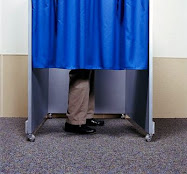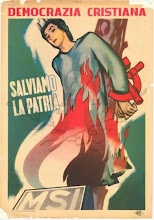
Senator John McCain came back after he looked too broke to compete for the nomination. Are we learning something new about the power of money in campaigns?
McKinnon: Yeah, I think we're learning there's just diminishing returns on political money. There's more of it than ever, but it has less impact than ever. At least in presidential contests, the power of the earned media just overwhelms everything. So, as difficult as this process is-I mean it takes candidates and humiliates them, strips them naked, runs them through the streets-at the end of that, you usually wind up with a nominee that's been pretty tested and eventually a president who is pretty prepared. McCain is a great example. He won that thing with spit and glue and not with money. He was able to overcome that deficit because he was a survivor and he had a great message.
What would you say is the biggest change in the world of political campaigns from your perspective as a strategist?
McKinnon: Technology has radically transformed what we do and how we do it. In 2000, we didn't even have BlackBerrys in the Bush campaign. Back then, I was having to make half-inch tapes and FedEx them across the country, trying to get Karl [Rove] or the president in a motel somewhere to approve an ad, and it could take days. By 2004 we could move and compress and digitize media so that not only could we get quick approvals, but we could hit a button and 6 million of our supporters would have it, and they could hit a button and 18 million would have it. So that was transformative. Now we have what we're broadly calling the YouTube election, which is more democratization, but it means we don't completely control the message anymore. It's being added to and diluted and amended by thousands and thousands of people out there in their pajamas producing ads-and some of them are pretty damn good.
Does this make you shake your head sometimes because you can work hard and then something comes along and sideswipes you and the message goes off in another direction?
McKinnon: It's enormously challenging for the campaigns and the candidates. There's a huge appetite and we have to feed that media beast. It's not just a 30-second ad here and there. We've got to keep web content up, and there's a huge audience and appetite for visual content. We've got people literally shooting around the clock now because we've got a constant demand for new content.
Let me ask you something about Senator McCain. Many observers say he has a fiery temper and this will hurt him in the campaign. Do you worry about this?
McKinnon: Listen, not only do I think the temper thing is not an issue, I've never seen him lose his temper. I've seen him be very passionate on a lot of occasions, which some may interpret as anger, but it's always directed at the right people. It's never at staff, it's always at chairmen of committees, or lobbyists, or powerful people. I think it's actually a good message for McCain to say, "Hey, listen, just like you I'm mad about what I see up here, and I've been fighting these earmarks, I've been fighting for these reforms that you're angry about, because I get angry about them, too."
Moving the focus over to Senator Obama, you've expressed admiration for him and have said you would not actively campaign for McCain if Obama became the Democratic nominee. What is it about Obama that makes him someone you would rather not take on or attack?
McKinnon: Thanks for the opportunity to clarify that, because there is some misinformation out there. First of all, I always have been, and always will be, 100 percent a McCain supporter. In my initial engagement with the campaign, I had never intended to be at the wheel. I was always encouraging the campaign to get some fresh legs and some fresh faces. I put together a team, and I was only planning on being on an occasional conference call. But then, of course, we had the meltdown and I turned around and it was me and the interns left. I was glad and proud to have the opportunity to do more because I have such a strong feeling for Senator McCain. But at the beginning of the campaign, I had spent a little bit of time with Obama and read his books, and I like him as a human being. I have deep disagreements about where he is politically. But at the time when I joined the campaign, I just flashed forward to this possibility-which, frankly, seemed pretty remote at the time-that it could be both Senator McCain and Senator Obama, and I just didn't have a great feeling about me being in the front slot in a campaign like that. I said then and I say now, I think it's just a terrific match-up for America. I think it could be a great race with two very clear and different political points of view and approaches. Now, I feel bound to honor what I said back then, but I explain it as moving from linebacker to head cheerleader.
Over your career you've worked for people across the spectrum, Democrats and Republicans, liberals and conservatives. Are you all about the person not the party?
McKinnon: There were times in my life when I held up a political filter to everything I did, and if I was going to work for a campaign [the candidate] would have to meet nine out of 10 things on a litmus test. I discovered over time that just because somebody meets a litmus test, it doesn't mean that they are necessarily a good officeholder or candidate. In fact, it's sometimes just the opposite. I learned that it was people with deep judgment and broad life experience who, even if I disagreed with them on occasion, were ultimately likely to make a decision in a really balanced way. Now I am definitely, just by the arc of my life, a Republican, but I am a moderate Republican.
Is there an accomplishment that you're particularly proud of?
McKinnon: The two Bush campaigns were interesting strategic challenges. In 2000 the conventional wisdom was that it was a Democratic year. The right track/wrong track [poll question] was very strongly on the right track, and if you asked people what the three most important issues were, they said healthcare, education and Social Security-and Democrats were winning all those by 10 points or more. So we had a setup where we were in a position of basically having to argue the following: Everything's great, so it's time for a change. It's kind of a long story about how we did that, but that's the very difficult strategic challenge we faced. Now, flash forward four years and it's exactly the opposite. The right track/wrong track is completely in the wrong direction, we're an incumbent president and people don't necessarily like the president or agree with his policies-we can't get that number over 50 percent. So now we faced the exact opposite strategic challenge, which was basically: Things are going to hell, stay the course. Again, there were different ways that we approached that, but as you look back at those two campaigns and recognize just what we were up against both times, it was a well-designed effort to overcome those hurdles.



















